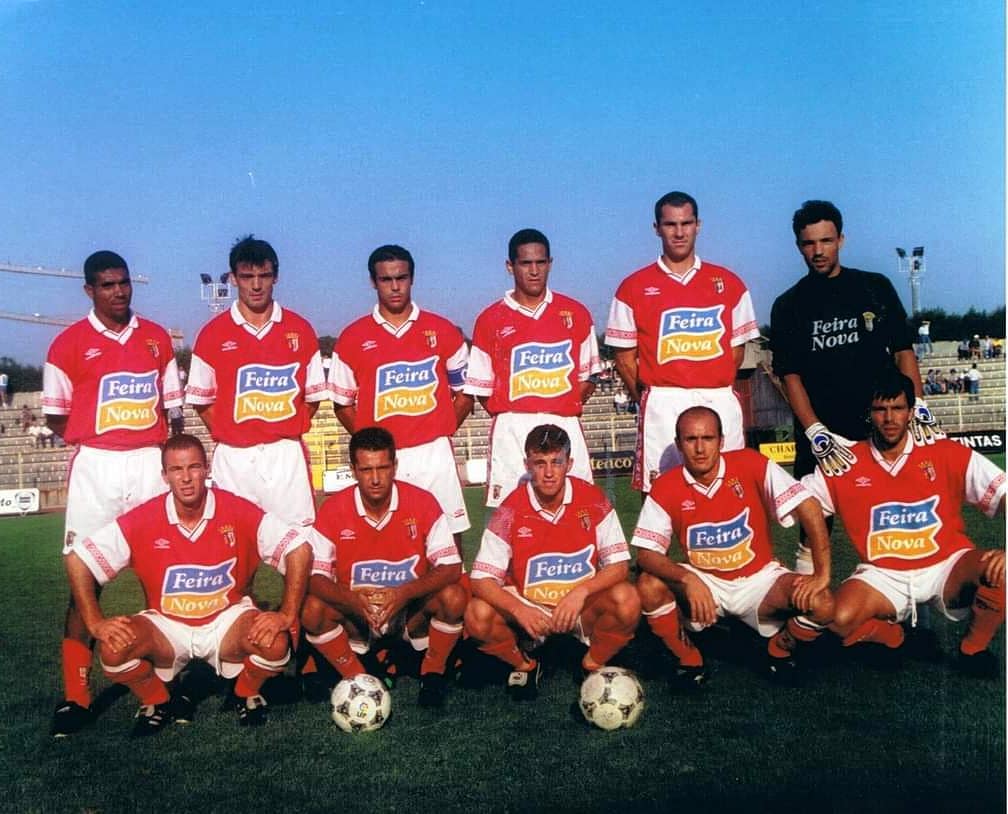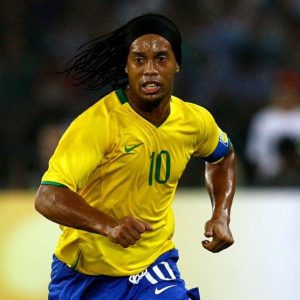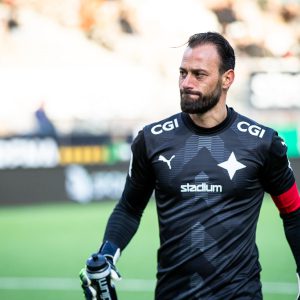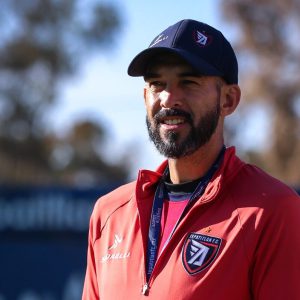

Idalécio: “A few years ago, 30-year-old players were considered old”
Idalécio Rosa is a former Portuguese centre-back who represented clubs such as SC Braga, Rio Ave FC, CD Nacional, SC Farense, and CD Trofense throughout a career exclusively built in his home country. He was the tallest player in the Primeira Liga by several times, with an impressive 1.96 meters tall, and consolidated his name in the history of Portuguese football. In this second part of the interview, Idalécio tells us about his experiences in the elite of national football and post-career steps off the pitch.
In the 1996-1997 season, he joined SC Braga, in a transitional period for the club, without the stability that the institution currently has. Immediately in the first season, the team achieved a historic 4th place in the Primeira Liga and the qualification for the UEFA Cup. He remained in Minho for six consecutive seasons, was coached by names such as Fernando Castro Santos, Manuel Cajuda, Vítor Oliveira or Toni Conceição and played with Quim, Eduardo, Ricardo Rocha, Tiago and Miklós Fehér. “SC Braga was a 10-12th place club, with some financial concerns. In my opinion, President João Gomes de Oliveira was, without a doubt, the great driving force behind everything that SC Braga is today. There were some less good times, but in those years, there were many more positive things. It is fantastic to see the growth and success that SC Braga is having!”, he said.
Despite having the desire to try other championships, the several seasons in the elite of Portuguese football were not enough to open any international doors.
“I cannot forget my former agent Manuel Barbosa. He was an outstanding figure in football and responsible for the success of many teams and players. Unfortunately, no opportunity ever came to me. We have talked about it many times. There was also a possibility through some Irish agents [before joining CD Nacional in the 2002-2003 season]. Coventry City FC, Bolton Wanderers FC, and even Celtic FC were the options reported in the press, but nothing concrete was proposed”.
The former centre-back was already an SC Braga icon when he left for José Peseiro’s CD Nacional, where he played only for a season, before signing for Rio Ave FC. “Óscar Dias helped me contact with CD Nacional. I signed a three-year contract, but unfortunately, I just stayed for one. My father had a very serious illness at that period and I wanted to be closer to him, so I asked people to comprehend and began checking alternatives without any representatives. CD Nacional agreed and the opportunity of joining Rio Ave arose. The club administration accepted a long-term contract [a three-year contract] and I did my best to help Rio Ave grow.”
After leaving Rio Ave FC, Idalécio could not stay at the highest level of Portuguese football.
“A few years ago, 30-year-old players were considered old. I faced difficulties mainly due to representation issues. If I had a certain agent, maybe I would. I was an experienced player without any serious injuries. Salaries were never discussed. When I left the Primeira Liga, the difficulties increased in working conditions., but I have always tried to be professional, regardless of the division or club”.
The post-career period in Portugal brought a set of intricacies that he did not expect to face. “In my case, I just thought I would have an opportunity [in football]. I have completed the UEFA B Coaching Licence, but I did not have the profile for certain situations that coaches have to go through or make players go through. It simply is not part of my way of being. There were other [interesting] positions, though: sports director and sports commentator. I finished my career without any qualification and opportunity [inside the football industry]. Unfortunately, in Portugal, the labor market for ex-players was insufficient.”
Idalécio ended up leaving his home country in 2013, precisely due to the adverse working, financial and political conditions. Currently in London, after accumulating professional experiences as a waiter, concierge, assistant manager, supervisor, and front desk receptionist, he does not hide his desire to work in the football world in the short or medium term. “Scouting is an extremely interesting area too. I know scouts end up having little time for their families. Although I am in a stable relationship, I know it takes time to develop that kind of work. I think I could do it with all my professionalism and dedication. Scouting or any other football-related job (…). It did not happen until now, but it does not mean it cannot happen [in the future]. In London, there is a permanent feeling when we wake up that something good will come. We will see!”, he concluded.
Categories
Latest Courses
-
9 Lessons
-
1 Lesson
-
6 Lessons
You May Also Like
-
-
August 1, 2022
-
-
June 3, 2022
-
-
May 27, 2022





